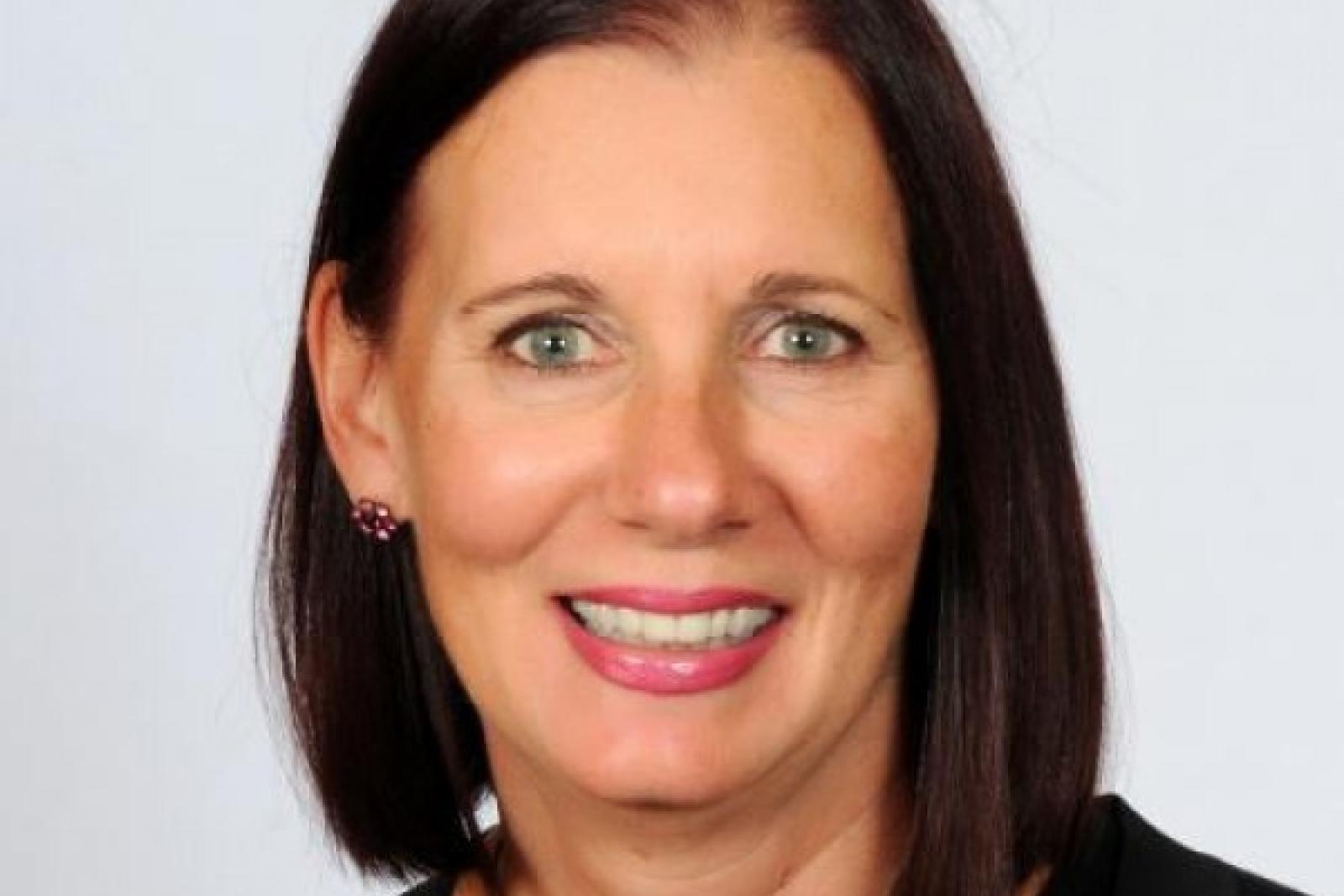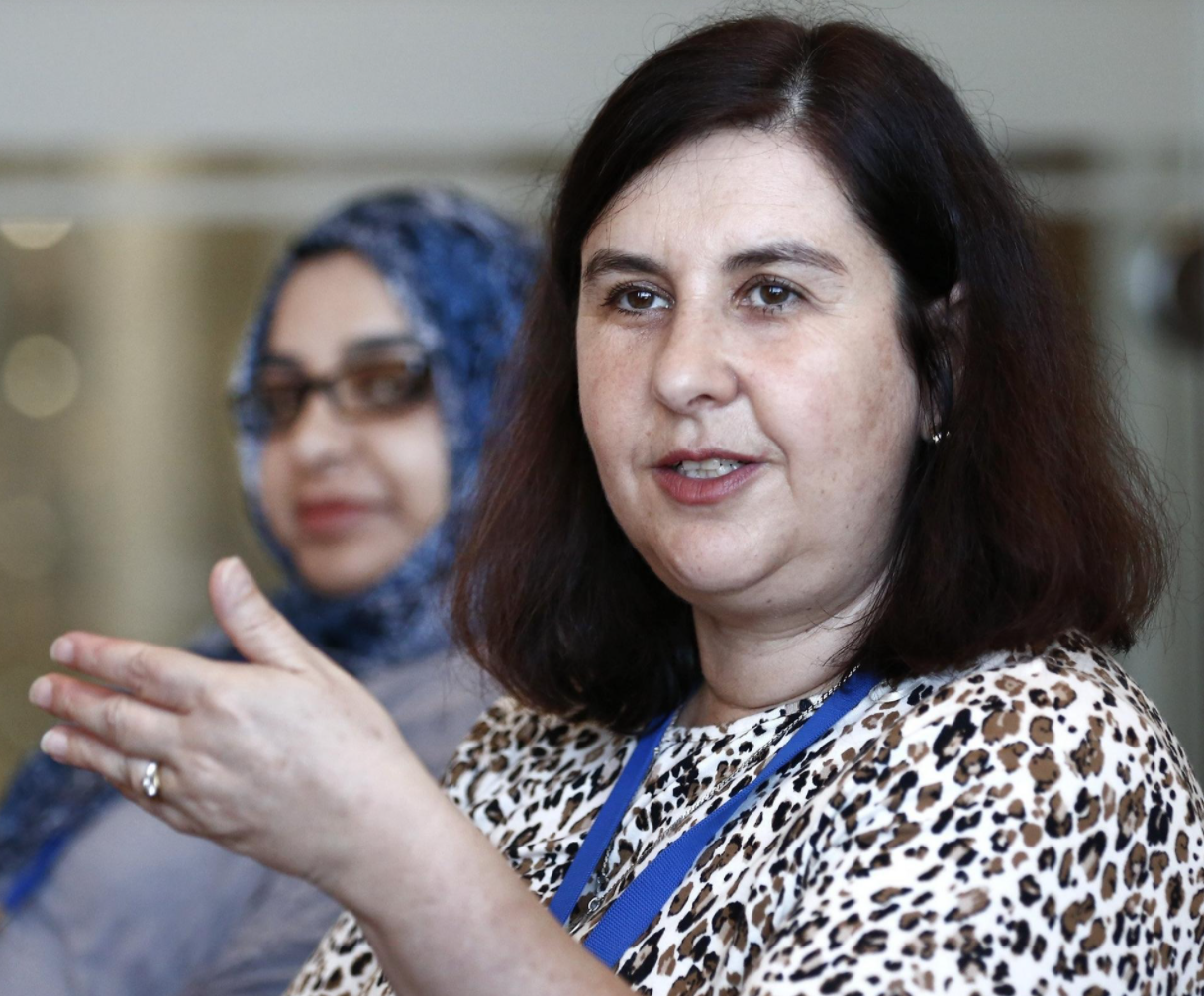Debra Goff uses her passion to save lives and empower others

Since the beginning of her career, Debra Goff, PharmD, FCCP, FIDSA, an infectious diseases (ID) specialty practice pharmacist at The Ohio State University Wexner Medical Center (OSUWMC) and professor of pharmacy practice at the Ohio State College of Pharmacy, has been passionate about antimicrobial (antibiotic) stewardship. She has long known its ability to decrease antibiotic resistance, which can save lives, and has strived to teach the next generation of health care professionals to implement it in their practice.
Igniting a passion for antibiotic stewardship
ID is an ever-evolving field with many complexities, which sparked a sense of curiosity in Dr. Goff early in her career.
“For fields like cardiology, health care professionals treat hypertension now almost the same way we treated it 30 years ago,” Dr. Goff said. “With infectious diseases, there’s almost nothing being treated the same way now as it was 30 years ago and there’s so much more to treat. I’m really interested in the constant evolution and having to be well-read to be one of the best providers of care for patients.”
Dr. Goff’s interest in ID ignited a passion for antibiotic stewardship when she started observing misuse of antibiotics. She found many instances where prescriptions were not appropriate, the wrong dose or prescribed for the wrong duration. The misuse facilitated a rise of antibiotic resistance in patients that further stressed the importance of antimicrobial stewardship programs (ASPs).
ASPs are required by law in the United States and are essential to tackle the complexities of antimicrobial care. These programs help health care professionals prescribe the correct antibiotic for the thousands of organisms that humans are vulnerable to, known in the industry as bug-drug matching. Bug-drug matching is especially important in pharmacy because while physicians have a general knowledge of drug therapy, pharmacists are the drug therapy experts. Both professions must work together to achieve the best outcomes.
Train the Trainer
Dr. Goff has traveled extensively, advocating the benefits of ASPs and collaboration of care around the

world. In 2010, the South African Medical Society invited Dr. Goff to speak to a room of 500 medical professionals at the annual Federation of Infectious Diseases Society of Southern Africa conference.
Dr. Goff began her speech by asking how many pharmacists were present in the room; she was shocked when only two raised their hands. When the conference reached its break, she spoke to the president of the organization and asked why so few pharmacists attended the meeting. The president replied that there were no pharmacists trained in ID.
“ASPs are not required in most low-middle-income countries, mainly due to a lack of trained individuals,” Dr. Goff said. “This has led to a general trend of their citizens having higher resistance to antibiotics. So, the need is even greater in the low-middle-income countries.”
Reflecting on the president’s response, Dr. Goff devised a plan to help. She drafted an idea that would become the Train the Trainer program. She successfully applied for a grant to launch the program, which will reach its 10th anniversary in 2022.
Train the Trainer is a two-week program at the Wexner Medical Center and Nationwide Children’s Hospital that teaches antibiotic stewardship and empowers pharmacists that travel from low-middle-income countries to understand that they are more than just dispensers in medication; they are experts in medicinal therapy and can be advocates for their patients’ health and their profession.
Through the program, pharmacists take what they learn and build ASPs in their own countries to teach their colleagues about best antibiotic practices.
Pharmacist Sonia Kolman, an alumna from the first graduating cohort of Train the Trainer in 2012, took what she learned in the program back to her home country of South Africa and became a voice of change at the Nelson Mandela Children’s Hospital, which led her to be nominated for a national award.![]()
“This is why we do what we do,” Dr. Goff said. “You never know the impact you have when you train someone. It’s fun to see the program’s students realize they will be the voice of change when they return to their country; they have a much bigger role in contributing to the advancement of the profession of pharmacy.
The program’s success, Dr. Goff noted, resides with pharmacists like Dr. Kolman and many others who are selected for the program and provide leadership skills in antibiotic stewardship in their home countries.
“I never take credit for the entire program. I created the idea, wrote the grant and train the pharmacists during their time at Ohio State and Nationwide Children’s Hospital, but it is really the leadership in South Africa and the dedication of the physicians and pharmacists, along with our passion, that make it work,” Dr. Goff said. “It would never work if just one person had the passion to do this.”
Dr. Goff and the South African pharmacists and doctors have published 20 articles outlining the program’s results and impact. Four articles were published in The Lancet Infectious Diseases, one of the highest and prestigious medical journals in the world. The publications caught the attention of the World Health Organization (WHO).
WHO appointment
WHO selected Dr. Goff and 24 other global experts in antibiotic stewardship to create a toolkit to help low-middle-income countries develop antimicrobial stewardship policies of their own.
The toolkit is a 50-page, step-by-step guide that outlines different roles for every type of health care provider. Whether the provider is a physician, pharmacist, microbiologist or nurse, the document is intended to empower them to facilitate change.
The toolkit is available to view now and will be taught by Dr. Goff and the other experts selected by the WHO in 2022, depending on the state of the COVID-19 pandemic.